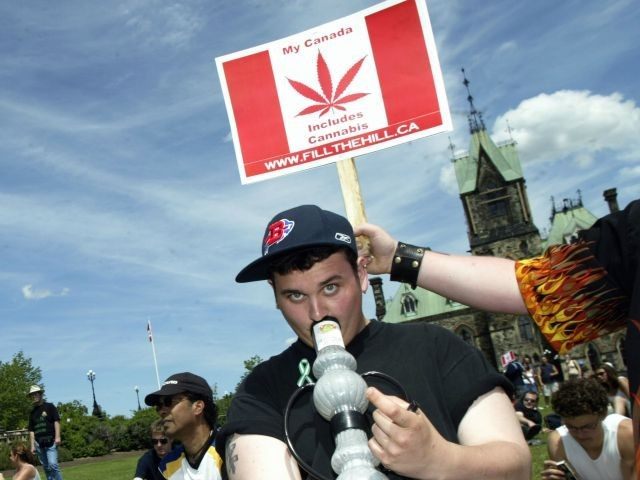As the 2015 federal election enters its third year second week, a variety of issues that are rarely at the forefront of Canadian political discourse have found their way into the campaign sphere. Elections in Canada tend to be defined by their lack of novelty or intrigue, typically five-week affairs that concern themselves mostly with healthcare, the economy and which party leader looks best in a cowboy hat. And yet 2015, with a campaign cycle of nearly 80 days, has found itself delving into more interesting issues. Like pot.
Medical cannabis, for those who have been following its travails in Colorado, has had a watershed year in Canada.
Vancouver is regulating its medical dispensaries. R. v. Smith, a case concerned with the availability of extracts for medical cannabis licensees, made its way to the Supreme Court, where Canada’s highest judiciary ruled in favour of the plaintiff, clearing the way for more accessible and consumable variations of the medicine.
The Allard case will soon be settled as well, where the legality and breadth of Health Canada’s regulation of medical cannabis is being questioned.
All of this has demanded that federal leaders vying to be Prime Minister must discuss an issue that, quite frankly, none of them seem comfortable with.
Prime Minister Stephen Harper counters his own government’s polling and claims that Canadians don’t want cannabis legalized and a new Harper regime will enforce that ideology to the full extent of the law.
Justin Trudeau’s Liberals are in favour of “legalization”, initially trying to co-opt the large pro-pot activist in BC, though like most of Trudeau’s platform, to what extent is unclear.
Thomas Mulcair and the NDP favour a typically socialist policy of over-regulated decriminalization and medical cannabis treatment that will bankrupt the taxpayers while appeasing the centrists.
The separatist Bloc Quebecois leans towards decriminalization, and may need a cannabis industry to keep an independent Quebec form becoming a Third World country absent of the Canadian dollar and welfare state transfer payments from more fiscally conservative provinces.
The Libertarian Party of Canada promises to “end the war on drugs by legalizing cannabis and immediately decriminalizing the consumption and possession of drugs.” The problem with libertarian platforms is that they are too rational and forward-thinking for the Canadian electorate, who prefer to live in a comfortable fog of the three-party (Conservatives, Liberals, NDP) system, which easily places their beliefs into simple Right, Centre, Left boxes.
The issue with all of the party’s platforms is that they fail, typically and unsurprisingly, to innovatively plan for the future. Elections all tend to be about one-, three-, five-year outlooks, where real policy change needs to have a multi-generational ambition. This insults the electorate and retards the country’s progress.
Canada currently employs a licensed producer model for medical cannabis, where the government allows certain companies to grow and distribute medical marijuana. It’s a monopoly of sorts, but shows that there is industry to be born of cannabis.
A truly resourceful platform would see beyond the issues of the day, and look towards where policy could place Canada in 10 years. An international cannabis industry is an inevitability. But technology and ingenuity are needed to foster its adolescence.
While Harper, Trudeau and Mulcair are talking about the now, they should be investing in what comes next by getting the government out of the way.

COMMENTS
Please let us know if you're having issues with commenting.